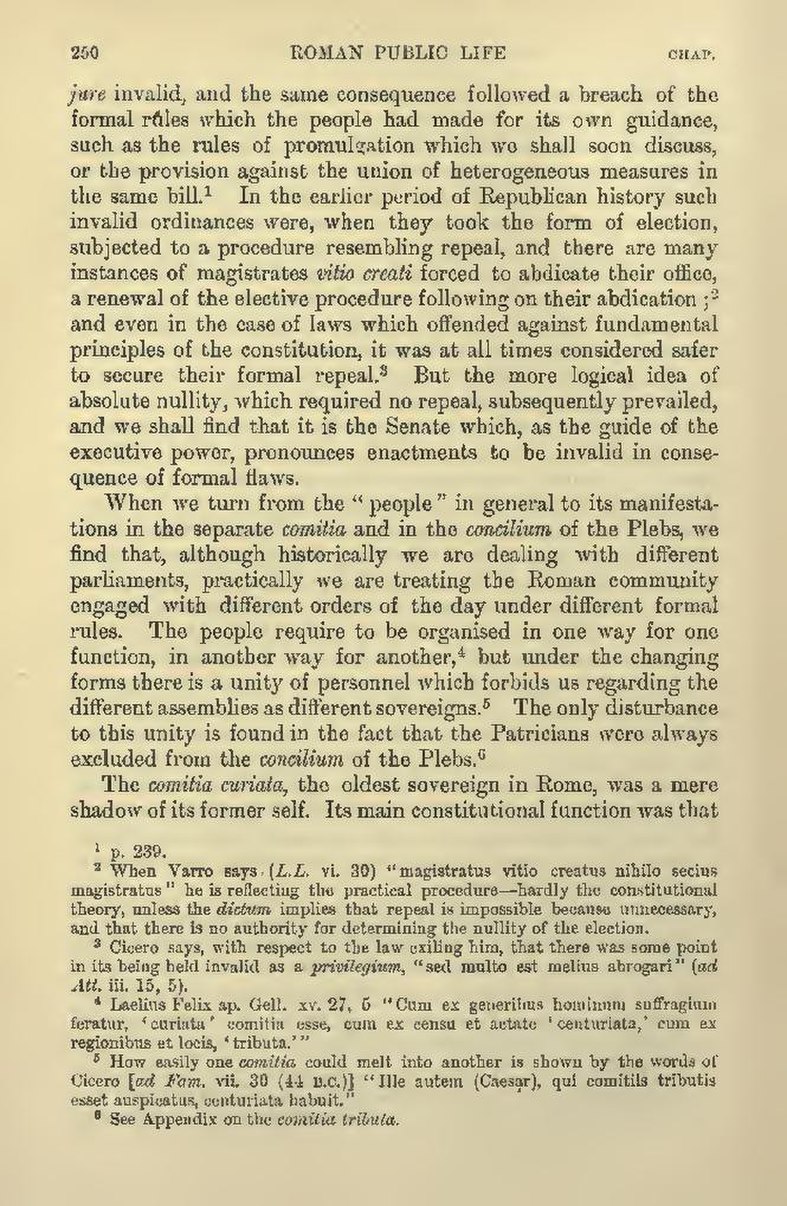jure invalid, and the same consequence followed a breach of the formal rules which the people had made for its own guidance, such as the rules of promulgation which we shall soon discuss, or the provision against the union of heterogeneous measures in the same bill.[1] In the earlier period of Republican history such invalid ordinances were, when they took the form of election, subjected to a procedure resembling repeal, and there are many instances of magistrates vitio creati forced to abdicate their office, a renewal of the elective procedure following on their abdication;[2] and even in the case of laws which offended against fundamental principles of the constitution, it was at all times considered safer to secure their formal repeal.[3] But the more logical idea of absolute nullity, which required no repeal, subsequently prevailed, and we shall find that it is the Senate which, as the guide of the executive power, pronounces enactments to be invalid in consequence of formal flaws.
When we turn from the "people" in general to its manifestations in the separate comitia and in the concilium of the Plebs, we find that, although historically we are dealing with different parliaments, practically we are treating the Roman community engaged with different orders of the day under different formal rules. The people require to be organised in one way for one function, in another way for another,[4] but under the changing forms there is a unity of personnel which forbids us regarding the different assemblies as different sovereigns.[5] The only disturbance to this unity is found in the fact that the Patricians were always excluded from the concilium of the Plebs.[6]
The comitia curiata, the oldest sovereign in Rome, was a mere shadow of its former self. Its main constitutional function was that"Ille autem (Caesar), qui comitiis tributis esset auspicatus, centuriata habuit."]
- ↑ p. 239.
- ↑ When Varro says (L.L. vi. 30) "magistratus vitio creatus nihilo secius magistratus" he is reflecting the practical procedure—hardly the constitutional theory, unless the dictum implies that repeal is impossible because unnecessary, and that there is no authority for determining the nullity of the election.
- ↑ Cicero says, with respect to the law exiling him, that there was some point in its being held invalid as a privilegium, "sed multo est melius abrogari" (ad Att. iii. 15, 5).
- ↑ Laelius Felix ap. Gell. xv. 27, 5 "Cum ex generibus hominum suffragium feratur, 'curiata' comitia esse, cum ex censu et aetate 'centuriata,' cum ex regionibus et locis, 'tributa.'"
- ↑ How easily one comitia could melt into another is shown by the words of Cicero [ad Fam. vii. 30 (44 B.C.)
- ↑ See Appendix on the comitia tributa.
